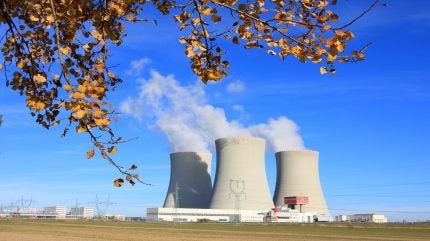
Korea Hydro & Nuclear Power (KHNP) has been selected by the Czech Government to build two nuclear reactors in the country, marking South Korea’s first overseas order for a large-scale nuclear power project since its development in the United Arab Emirates (UAE) in 2009.
The final deal for the project has not been completed, but South Korea’s industry ministry said it is likely to be agreed by March 2025, according to Reuters.

Discover B2B Marketing That Performs
Combine business intelligence and editorial excellence to reach engaged professionals across 36 leading media platforms.
Although the financials are therefore not finalised, the Czech Government estimates that the cost of a new unit when building two at the same site will be Kč200bn ($8.65bn).
KHNP, a subsidiary of the Korean state utility KEPCO, out competed its French rival EDF as it proved superior in meeting project deadlines and keeping costs within budget. South Korean officials used the example of its 2009 UAE nuclear order to illustrate the point.
Two sources close to the matter told Reuters that South Korea put forward a significantly less costly bid than EDF, helping to prompt the selection decision.
In 2022, President Yoon Suk Yeol pledged to export ten more nuclear power plants by 2030, leading to deals such as Russia’s Atomstroyexport, Rosatom’s engineering division, subcontracting KHNP in a $2.25bn (Rs197.82bn) deal to provide materials and help build four nuclear power plants in Egypt.

US Tariffs are shifting - will you react or anticipate?
Don’t let policy changes catch you off guard. Stay proactive with real-time data and expert analysis.
By GlobalDataWhile seeking to increase nuclear power exports, South Korea is also striving to develop its own nuclear power industry. Last month, President Yoon Suk Yeol announced plans to create a small modular reactor (SMR) industrial hub in Gyeongju, a city in the south-east of the North Gyeongsang Province.
SMRs are smaller than traditional reactors and can be deployed in more disparate areas. South Korea is looking to become a vital player in their construction.
There are currently 26 nuclear reactors in South Korea, which produce around one-third of the country’s electricity.





